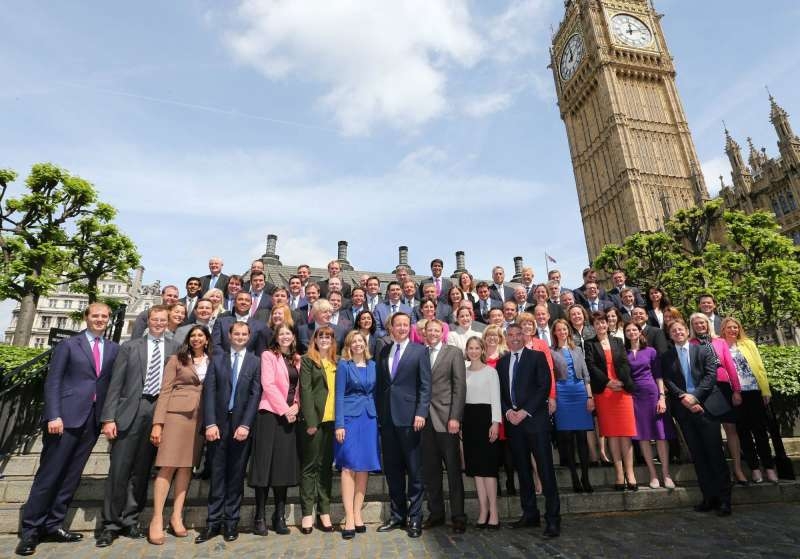Cameron unveils plans for a parliament of “blue-collar Conservatism”…writes Kaliph Anaz for Asian Lite, UK’s No 1 newspaper for British Asians
 Prime Minister David Cameron told the first all-Tory cabinet meeting for 18 years that they must focus on “bread and butter” ways of improving people’s lives. The Conservatives won a 12-seat majority in the House of Commons in Thursday’s election, taking 331 of the 650 seats.
Prime Minister David Cameron told the first all-Tory cabinet meeting for 18 years that they must focus on “bread and butter” ways of improving people’s lives. The Conservatives won a 12-seat majority in the House of Commons in Thursday’s election, taking 331 of the 650 seats.
Addressing his top team for the first time since his victory, he promised a “down-to-earth” Conservative agenda focused on extending opportunity.
He also insisted all changes to public services must be rooted in “true social justice and genuine compassion”.
Among those attended the cabinet for the first time are a raft of female and younger ministers, including Amber Rudd, the new energy secretary, Priti Patel, the employment minister, and Anna Soubry, the small business minister.
“I want everyone around this table to remember who we’re for. Every decision we take, every policy we pursue, every programme we initiate, never forget: we’re here to give everyone in our country the chance to make the most of their life,” said Cameron. “The pundits might call it ‘blue-collar Conservatism’, others being on the side of hardworking taxpayers. I call it being the real party for working people: giving everyone in our country the chance to get on, with the dignity of a job, the pride of a pay cheque, a home of their own and the security and peace of mind that comes from being able to support a family.
“And just as important – for those that can’t work the support they need at every stage of their lives.”
Brandishing a copy of the Conservative manifesto, he said the government had a mandate to deliver all of it.
He urged his ministers to focus on “down-to-earth” ways of “giving everyone in our country the chance to live a good and fulfilled life and make the most of their talents”.
His party, he said, will offer “the chance to get on, with the dignity of a job, the pride of a pay cheque, a home of their own and the security and peace of mind that comes from being able to support a family”.
He said it would also support those that cannot work, repeating a phrase he delivered after the 2010 election that “those that can should and those that cant we always help”.
The Conservatives say measures on work and childcare will be at the heart of their first legislative programme, due to be announced on 27 May, and will be “fast-tracked” through Parliament.
During the election campaign, Mr Cameron said the UK should aspire to “full employment”, which he defined as Britain having the highest percentage of people in work of any developed nation.
The employment bill will push for two million jobs and three million apprenticeships to be created over the next five years.
It will also lower the annual household welfare cap – the maximum amount that any household can receive in benefits – from £26,000 to £23,000.
Downing Street said this would “ensure people are always better off in work and there is an end to the something-for-nothing culture”.
A second bill will focus on childcare. Currently, all three and four-year olds in England are entitled to 570 hours of free early education or childcare a year, which works out as 15 hours each week for 38 weeks of the year.
During the election campaign, the Conservatives promised 30 hours from 2017.
The PM will also promise to introduce tax-free childcare for every child.
Media reports have suggested the referendum could be brought forward to 2016 if the legislation needed to pave the way for the vote is passes quickly through Parliament and if negotiations with other EU leaders conclude earlier than expected.
Mr Cameron is putting the finishing touches to his government, by filling the ranks of junior ministerial positions. Among those to be given jobs include Ben Gummer, Damian Hinds and Justine Tomlinson, the latter becoming minister for disabled people.
Rory Stewart, the former diplomat who was chair of the Commons defence select committee, is to become a junior minister at the Department for the Environment, Food and Rural Affairs.